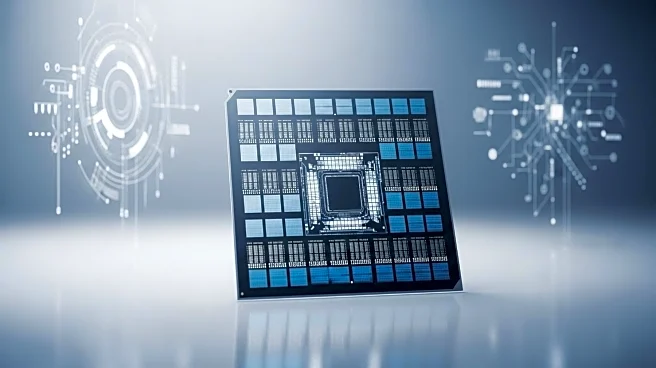What's Happening?
Taiwan has firmly rejected a proposal from the United States to relocate half of its semiconductor production to American soil. This decision was announced by Taiwan's Vice Premier Chen Li-chun, who emphasized that Taiwan has not agreed to a 50-50 split of chip production with the U.S. The proposal was part of ongoing trade discussions, where the U.S. expressed concerns over its heavy reliance on Taiwan's chip manufacturing, primarily provided by TSMC, a key supplier for major tech companies like Nvidia and Apple. The U.S. Secretary of Commerce, Howard Lutnick, argued that sharing production capacity would enhance security and provide strategic options in case of geopolitical tensions, particularly with China. However, Taiwan views its semiconductor industry as a 'silicon shield,' a critical component of its national security strategy, deterring potential aggression from China.
Why It's Important?
The rejection of the U.S. proposal by Taiwan underscores the strategic importance of the semiconductor industry in global geopolitics. For the U.S., diversifying chip production is crucial to reducing dependency on foreign manufacturing, especially amid rising tensions with China. For Taiwan, maintaining control over its semiconductor production is vital for its economic and national security. The decision also highlights the delicate balance Taiwan must maintain between cooperating with international partners and safeguarding its strategic interests. The outcome of these negotiations could significantly impact the global semiconductor supply chain, affecting industries reliant on these critical components.
What's Next?
As trade talks continue, both Taiwan and the U.S. are expected to explore alternative solutions that address security concerns while respecting Taiwan's strategic interests. The U.S. may seek to negotiate other terms, such as reducing tariffs on Taiwanese goods, to strengthen economic ties. Meanwhile, Taiwan will likely continue to leverage its semiconductor industry as a strategic asset in international relations. The ongoing dialogue will be closely watched by global stakeholders, including tech companies and governments, given its potential implications for the semiconductor market and international trade dynamics.










